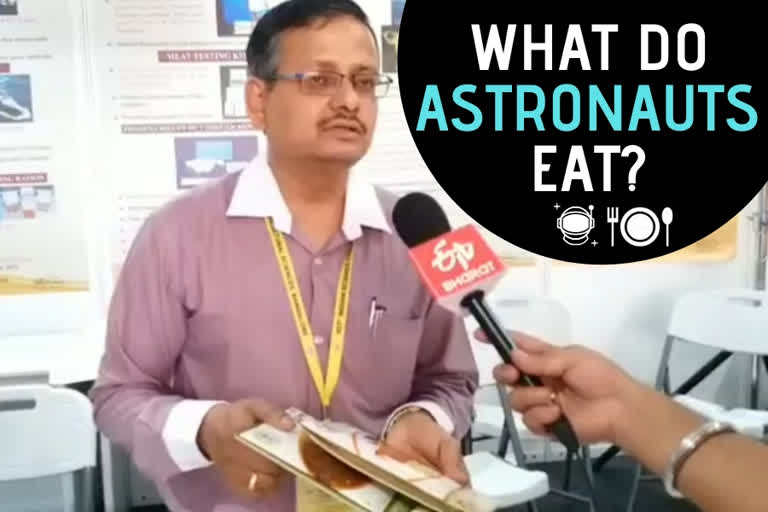Bengaluru: The DRDO's Defence Food Research Laboratory, Mysuru will provide space food for astronauts of ISRO's Gaganyaan - India's first manned mission.
Speaking to ETV Bharat, DFRL scientist Jagannath said, "As there is no gravity in outer space preparing food and eating is a big challenge. On earth, ready to eat food like Suji Halwa or Rajma Curry can be prepared by heating them in hot water. But in outer space, as there is no gravity, it is a difficult task for astronauts."
Elaborating on the food system in outer space, the scientist said that the water must be pushed into the food packets using pressure in order to make it ready to consume.
On a similar note, drinking water is also a big challenge as one must sip water or fluid by force, he added.
The bigger challenge here is the leftover fluids and food, there are many chances where a leftover portion of fluids may escape to the space environment, this might, in turn, affect the working conditions of equipment in the space station.
Read: ISRO to train 4 astronauts for 'Gaganyaan', here's all you need to know
Among the food packets exhibited at the Indian Science Congress in Bengaluru were Indian staples like 'Potato stuffed parathas' (aloo parathas), Chicken Pulav, Suji Halwa, and Rajma Curry.
On being asked whether Indian food, which is relatively spicier, poses a certain threat to the astronauts' safety, Jagannath said, "Food must not be brittle, as the food might escape into the capsules the moment packets are opened. To avoid this, the DFRL has used binders to keep food intact so it doesn't fly."
The scientist informed that the experiments started a year back when ISRO and DRDO inked an MoU.
However, he said that the absence of 'zero-gravity' test facilities did make things difficult. ISRO, on its part, is probably coming up with zero gravity test facility.
Further, the lab is sending a request letter as ISRO is planning for an unmanned mission. ISRO might share some equipment for tests in the future.



